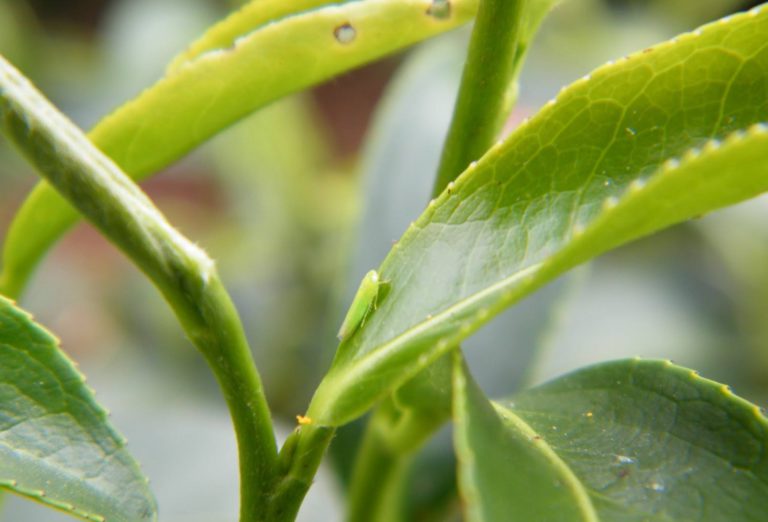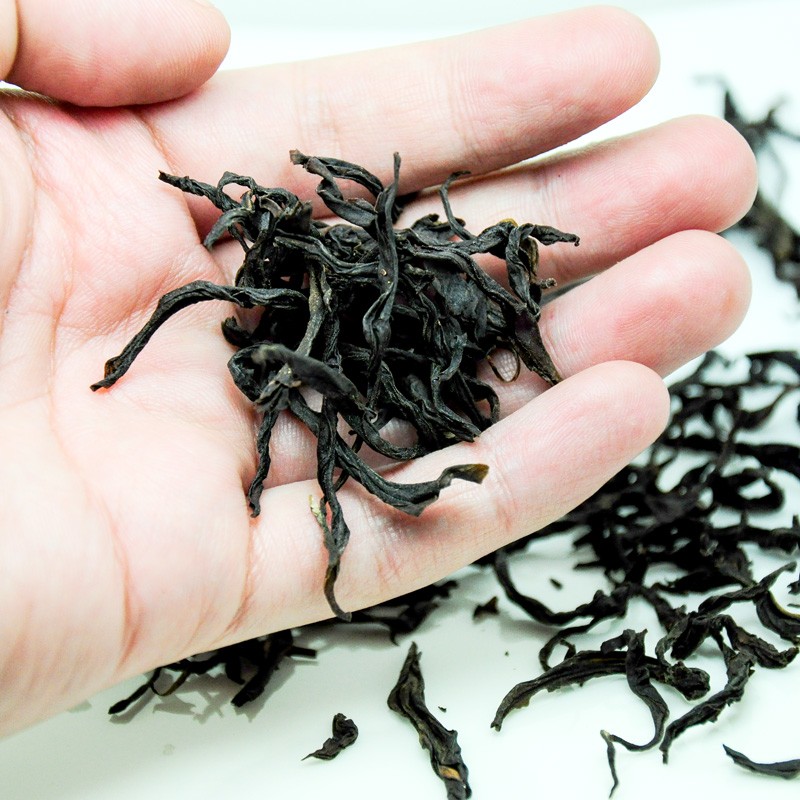Do Taiwan's honey-scented black tea and Jinxuan tea belong to high-quality tea? How to correctly distinguish between authentic honey-scented black tea and Jinxuan tea by its aroma characteristics?
After opening the first packet of tea for a month, but closing it with a clip (not mine), I tried some of this tea (low ratio, long steep) and I got a sweeter experience from this tea. Although the dried leaf has almost no smell now, it comes back to life when water hits it! Cinnamon, sugar cane, mineral flavor and less intense osmanthus, and equally excellent calming energy! Please note that this tea starts to change when you open the package (just like most Taiwanese teas)! This is a fine tea from Hualien County, Taiwan. But I don't drink it as often as other teas: this tea stands out and I'm happy to drink it often because it has excellent tea breath and taste. This is a very high quality tea, coming from a family run farm that moved into sustainable farming early thanks to support from the local government. Although farm cultivation is supposed to be pesticide-free, this tea is not certified organic, so I wouldn't sell it as organic. However, this tea does meet and exceed Taiwan's SGS pesticide standards. Like Oriental Beauty, this tea produces traces of osmanthus when the leaves are bitten by leaf worms. The best oriental beauties (and honey!) There is a lovely and strong smell of osmanthus (in my experience, low-end things don't). This does make me wonder if similar leaf damage has occurred in Guangdong producing single fir tea, which also has a similar osmanthus aroma. This tea is made with Jinxuan and fresh ingredients, which makes it very different from Chinese black tea. Taiwan produces many different varieties of black tea. I have a very good Taiwan Tieguanyin Hong tea, which reminds me of this tea as well. Mixiang is a relatively new tea in Taiwan, but this farm has won several awards for this tea, and I think this tea definitely deserves praise! In addition to the choice of varieties, this tea differs from Oriental Beauty in that it has also been lightly roasted, further bringing out and transforming the lovely aromas in the leaves. The taste of baking is almost imperceptible, but this tea is absolutely unique! This tea served on the table for the first time I drank, although there is osmanthus fragrance, mellow, smooth taste, sweet taste, dry taste, more rest will be better to drink! I already knew this tea was delicious, but the second time I drank it, I knew what I had in my hand!

After a little time, the leaves smell more like honey. In a warm pot, I could smell osmanthus and chlorophyll. There's malt and sugar cane in the aftertaste. This tea smells good! I brewed this tea in a glass teapot with a built-in glass filter at 90 degrees Celsius, using my standard parameters for making Taiwanese oolong tea: cover the bottom of the teapot (a little more), starting from 45 seconds to 1 minute. I cut the second brew down to 30 seconds, then went back to 45 seconds to a minute for the third brew. Then I added 30 seconds to each injection. During the first infusion, I could smell a hint of smoked aloes, which was a pleasant surprise. In the cup you can smell sugar cane and osmanthus, and some malt (malt is definitely not the main tone)! The lasting sweetness reminds me of honey. As I continued to drink, I realized that the characteristics of malt were very much like barley malt (which is my favorite)! I had never found a clear barley flavor in black tea before, so this was definitely a surprise. The tea was very calming because it was my first time drinking it. Taiwanese do produce superior black tea with superior tea breath. I get a similar calming energy from carbuncle tea. This tea has one of the highest tea qualities I've ever tasted. It's almost free! The taste of the second brew is more fragrant than the sweetness: smoked aloes and chlorophyll dominate the taste of the infusion. A trace of bitterness followed, but it was also accompanied by a sweet return. I also received some notes reminding me of Baozhong, which was a surprise. The sweetness of this tea lingers on the taste buds. Add to that a touch of bitterness that reminds me of saccharin, but much more pleasant! After the tea cooled, I smelled sweet fragrance again: sugar cane, osmanthus and incense are obvious. Some slight astringency is also evident. I also accidentally got a bit of wildflower honey, which I definitely didn't expect! The third brew was also very different. On the third brew, the slight bitterness is less pronounced. Instead, I found some slight sourness. The flavor mixes even more strongly on the third brew and is difficult to pick out. There are distinct toasted bun characteristics, and there is a slight grassy smell (but not the chlorophyll smell I found earlier). I also found the taste of Assam black tea (but without the corresponding astringency and bitterness that most Assam teas have)! I have also noticed that this tea has a very umami flavor and is always popular! The fourth cup gave me a clear package seed flavor: sweet floral at first, but also slightly toasted package seed and butter flavor. The tea was still obvious. I also got a slight whiff of tobacco smoke, which I hadn't expected, and some mineral features at the end! By the sixth brewing, the cream package flavor was dominant. The lovely light bitterness combined with the lasting sweetness is still evident. I have noticed that this tea has a stronger calming effect than any black tea I have ever had (impressive)! As the tea cools, osmanthus, chlorophyll, tobacco and minerals are evident again. This tea steeps well in a pot (not that you can't replace it with a covered bowl)! The seventh cup brewed more osmanthus, and I smelled a surprising meaty smell, as well as a hint of tobacco. This tea makes my digestive juices boil! I brewed this tea eight times, and maybe I could drink it better. If you like black tea (or even oolong tea), this is a great tea and worth a try, because there is no other tea like it!
Important Notice :
前街咖啡 FrontStreet Coffee has moved to new addredd:
FrontStreet Coffee Address: 315,Donghua East Road,GuangZhou
Tel:020 38364473
- Prev

How much is the duck shit fragrant oolong of Nai Xue's tea? Does Nai Xue's duck shit smell taste good? what are the characteristics of the taste?
When I bought a sample of this tea in 2017, I almost eliminated the single clump: the single clump on the market had too many flaws and even had a chemical flavor. After talking to the single clump on the farm, I changed my mind! I found something good. This kind of tea tastes smooth, neither astringent nor bitter, and the taste comes from tea.
- Next

This Guangdong local coffee brand sells millions of cups a year! Analysis on the causes of the explosion of "beating balsam pear and lemon tea" on the planet of tea salvation
The unsolved mystery of the world: Guangdong's per capita hot physique! It is no exaggeration to say that drinking water in Guangdong will be hot, so herbal tea is a must for Guangdong people. But! Some herbal tea is really bitter to drink. In order to save the Martians, Guangzhou local tea brand [Tea Save Planet] launched balsam pear lemon tea. Adopt the current season
Related
- What grade does Jamaica Blue Mountain No. 1 coffee belong to and how to drink it better? What is the highest grade of Blue Mountain coffee for coffee aristocrats?
- What are the flavor characteristics of the world-famous coffee Blue Mountain No. 1 Golden Mantelin? What are the characteristics of deep-roasted bitter coffee?
- Can I make coffee a second time in an Italian hand-brewed mocha pot? Why can't coffee be brewed several times like tea leaves?
- Hand-brewed coffee flows with a knife and a tornado. How to brew it? What is the proportion of grinding water and water temperature divided into?
- What is the difference between Indonesian Sumatra Mantinin coffee and gold Mantinin? How to distinguish between real and fake golden Mantelin coffee?
- What does bypass mean in coffee? Why can hand-brewed coffee and water make it better?
- Unexpected! Ruixing Telunsu lattes use a smoothie machine to foam milk?!
- % Arabia's first store in Henan opens into the village?! Netizen: Thought it was P's
- Does an authentic standard mocha coffee recipe use chocolate sauce or powder? Mocha Latte/Dirty Coffee/Salty Mocha Coffee Recipe Share!
- What is the difference between Vietnam egg coffee and Norway egg coffee? Hand-brewed single product coffee filter paper filter cloth filter flat solution!

